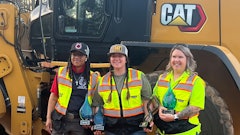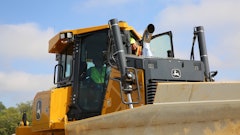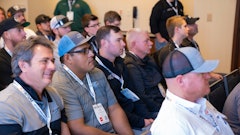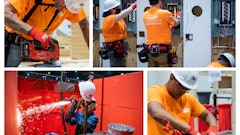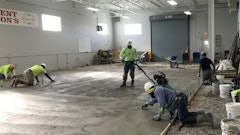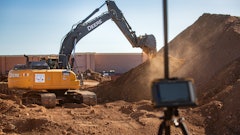
Nearly a year ago, I wrote about the construction industry's worst kept secret: Discrimination is a jobsite safety issue. Just as important as hard hats, traffic flaggers, and steel toed boots, if a worker is subjected to unwanted sexual advances, harassment, and verbal abuse, they aren't safe on the jobsite.
As an example of what a situation like this looks like in the real-world, the U.S. Equal Employment Opportunity Commission (EEOC) announced that Balfour Beatty, Inc., a highway construction company doing work in Craven County, North Carolina, as the defendant in a sexual harassment lawsuit, due to the alleged long-term conditions that one of their female truck drivers were subjected to.
What Is In The Lawsuit
The EEOC suit alleges that, for over a year, the victim was subjected to harassment by several male coworkers. One coworker asked the victim to “talk dirty” to him, send pictures of her breasts, and sit on his lap. He also sent her unwanted, sexually explicit text messages.
As you might expect, the victim went to the job foreman and reported the behavior in the hopes that it would stop. Reportedly, the foreman just laughed in her face, and the behavior continued unabated. Perhaps, due to the inaction of the foreman, the levels of harassment increased as one coworker started to send the victim photos of his genitals during off-work hours.
The type of harassment she endured reportedly felt targeted specifically because of her gender, since some of the derogatory things her male coworkers would say to her on a daily basis were, "shut the f*** up you stupid b****”, and told her, “This is a man’s world . . . if you can’t handle it then go work for Walmart.”
In an act of alleged retaliation, after the victim complained to a superintendent, she was denied an opportunity for advancement she was expecting, the EEOC charged. Instead, she was transferred to an undesirable work location while the offending coworkers, and the foreman who failed to stop the abuse, were transferred to the more desirable project.
Such alleged conduct violates Title VII of the Civil Rights Act of 1964, which protects individuals from workplace discrimination and harassment. The EEOC seeks monetary relief for the victim, including back pay, and compensatory and punitive damages. The EEOC also seeks injunctive relief against the company to end any ongoing discrimination and to prevent such unlawful conduct in the future.
For those reading who work in the construction industry, or who have in the past, all this behavior likely doesn't come as a surprise. It often is passed off as "part of the job," but for business owners and industry leaders, if this kind of workplace culture doesn't change, then it will only hurt the workforce recovery efforts.
We Have To Do Better
In the winter of 2022, Asphalt Contractor Magazine spoke to Audrey Copeland, President and CEO of the National Asphalt Pavement Association, about the future of the asphalt industry's workforce for it's annual State of the Industry. Labor availability is an issue for the asphalt industry, as it is for a wide range of industries, Copeland noted that the fastest growing demographic in the industry for those seeking out employment were single women. What happens if the vast majority of those new workers encounter similar situations to the one presented in this lawsuit?
“Some of the most egregious incidents of harassment and discrimination investigated by the EEOC over the past several years have occurred in the construction industry,” said EEOC Chair Charlotte A. Burrows. “The prevalence and severity of abuse directed at women in the construction industry is a significant barrier to their ability to get and keep good jobs in construction and further their careers in the industry. The EEOC is committed to advancing equal opportunity in construction by using all its tools, including outreach, education, technical assistance and, where necessary, litigation.”
“Employers in the construction industry must be vigilant in their efforts to protect women from sexual abuse and discrimination in the workplace,” said Melinda C. Dugas, regional attorney for the EEOC’s Charlotte District. “When discrimination policies and reporting procedures are illusory because no one is enforcing them, they only serve to undermine the employer’s legitimate efforts to comply with the law.”
Resources For Employers And Workers
In May 2023, Chair Burrows issued a report entitled “Building for the Future: Advancing Equal Employment Opportunity in the Construction Industry.” The report found that persistent discrimination, including harassment, in construction creates barriers to building a more inclusive industry at a time when the unprecedented federal investment in infrastructure is spurring new hiring and expanding opportunities. The report offers strategies for more effectively advancing equal employment opportunity in construction.
For more information on retaliation, visit https://www.eeoc.gov/retaliation.
For more information on sex-based discrimination, visit https://www.eeoc.gov/sex-based-discrimination.
For more information on sexual harassment, visit https://www.eeoc.gov/sexual-harassment.










